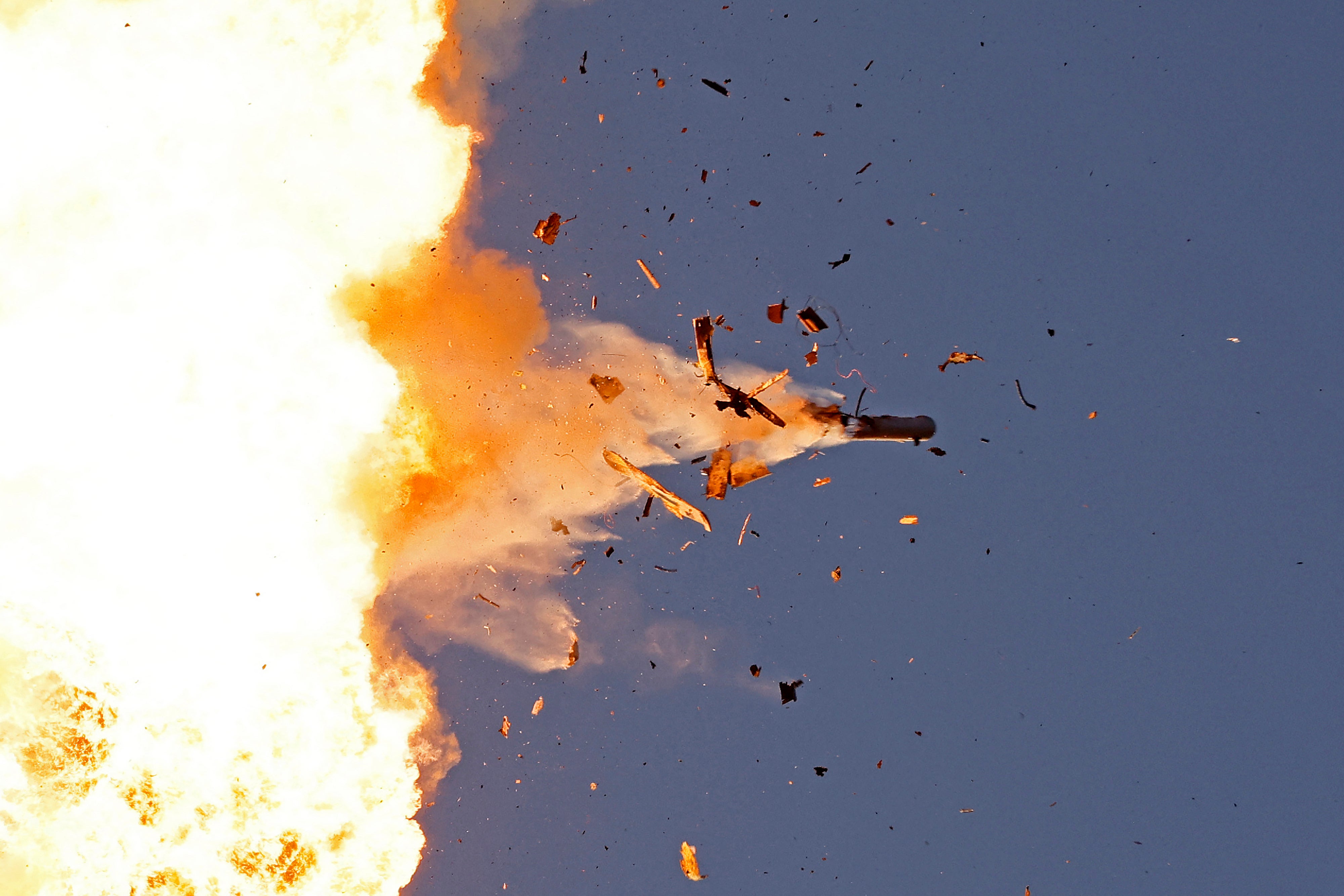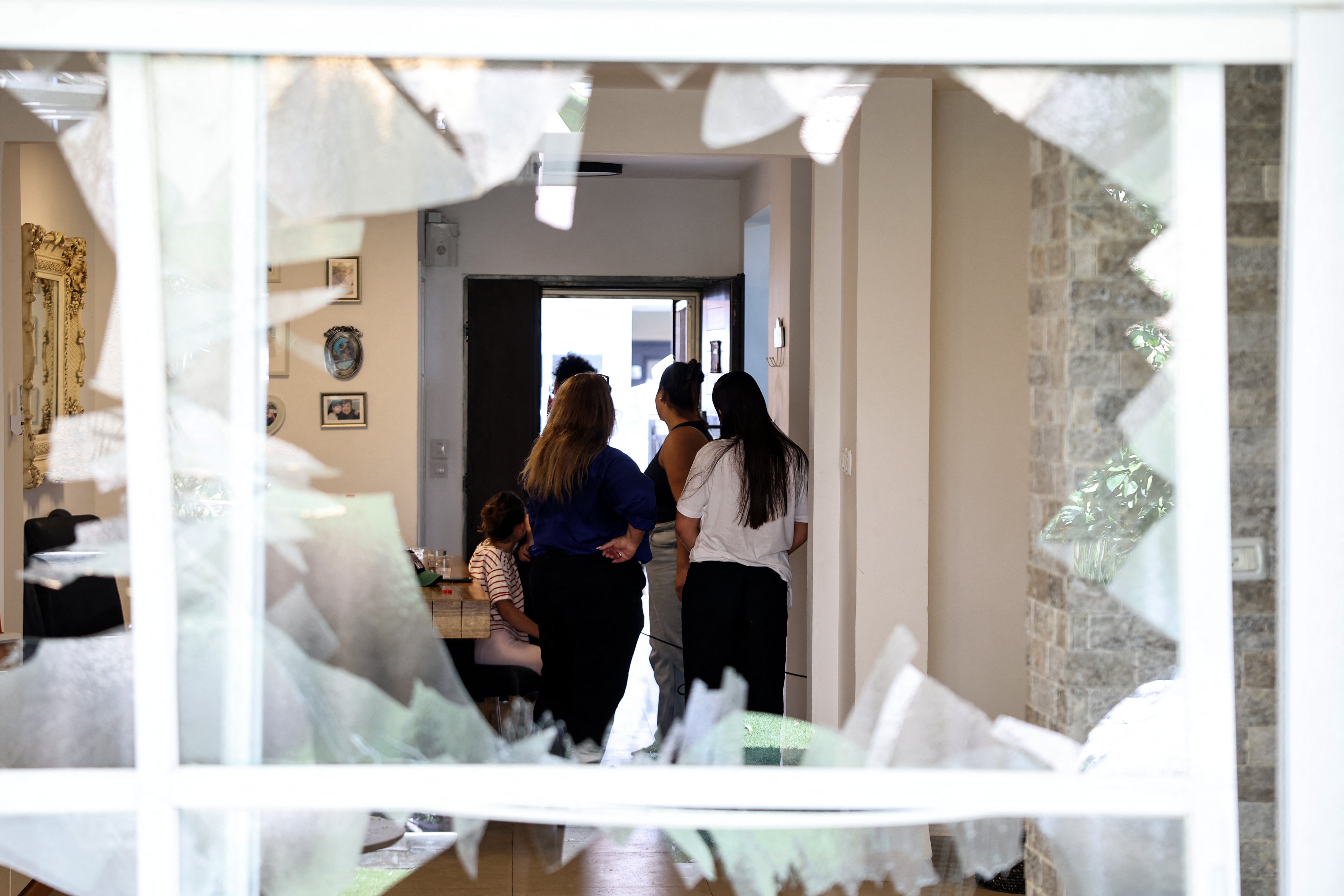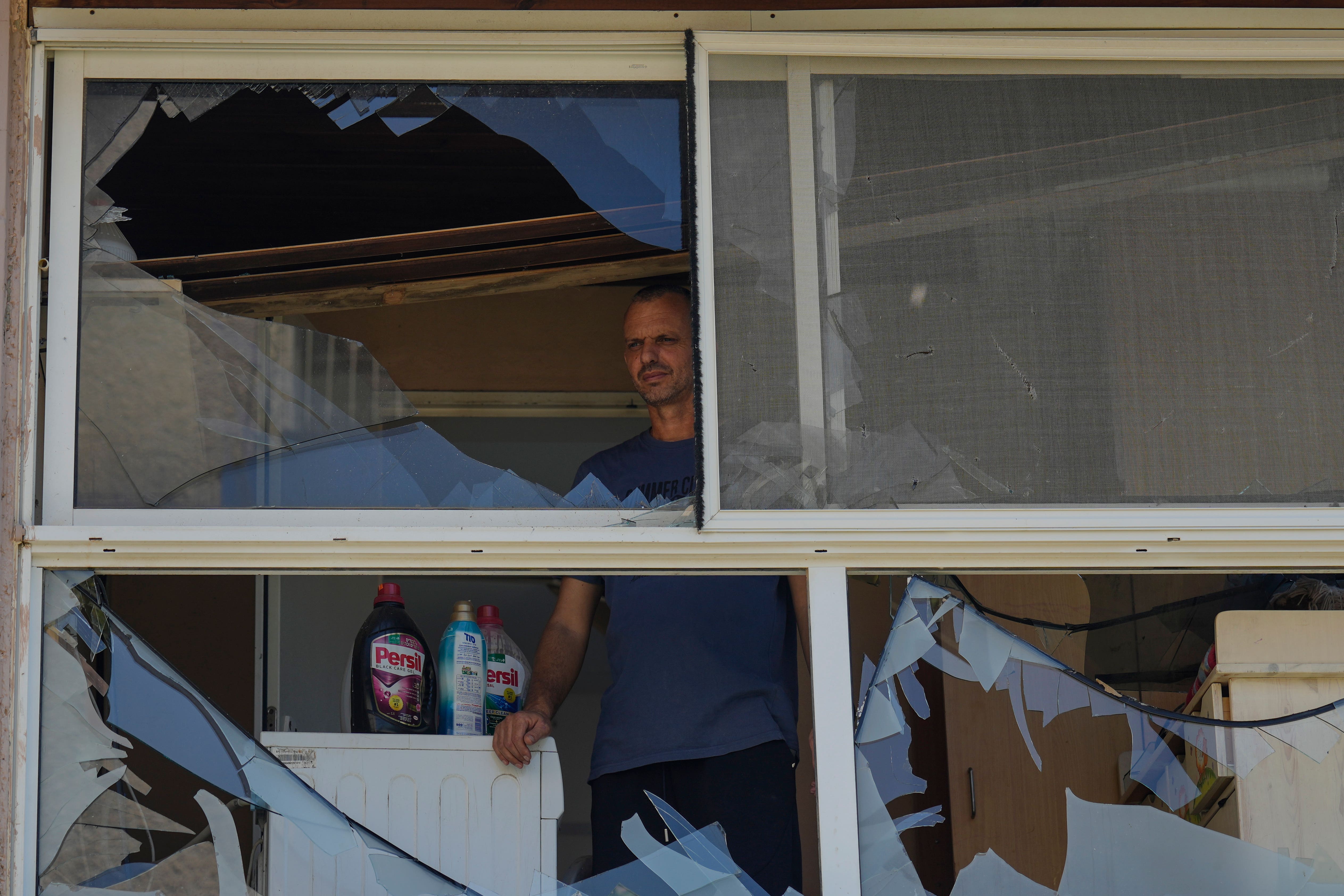Netanyahu warns ‘this is not the end’ after Israel and Hezbollah exchange heavy fire in major escalation
Hezbollah leader Hassan Nasrallah says the Iranian-backed group could ‘respond’ with another attack

Your support helps us to tell the story
From reproductive rights to climate change to Big Tech, The Independent is on the ground when the story is developing. Whether it's investigating the financials of Elon Musk's pro-Trump PAC or producing our latest documentary, 'The A Word', which shines a light on the American women fighting for reproductive rights, we know how important it is to parse out the facts from the messaging.
At such a critical moment in US history, we need reporters on the ground. Your donation allows us to keep sending journalists to speak to both sides of the story.
The Independent is trusted by Americans across the entire political spectrum. And unlike many other quality news outlets, we choose not to lock Americans out of our reporting and analysis with paywalls. We believe quality journalism should be available to everyone, paid for by those who can afford it.
Your support makes all the difference.Israeli prime minister Benjamin Netanyahu has warned that “this is not the end” as Israel and Iranian-backed Hezbollah exchanged heavy fire in southern Lebanon in an escalation of the Middle Eastern conflict.
The cross-border firing of missiles, rockets and drones was the largest day of attacks since the conflict between Hezbollah and Israel was reignited last October, after fellow Iran-backed group Hamas led a deadly incursion into Israel.
The Israeli military said it had struck Lebanon, the south of which is controlled by Hezbollah, on Sunday morning with around 100 jets to thwart an attack from the Iran-backed militia.
Hezbollah then fired hundreds of projectiles and drones at Israel, claiming they fired 320 Katyusha rockets and hit 11 military targets in what it called the “first phase” of its retaliation for Israel’s assassination of Fuad Shukr, a senior Hezbollah commander, last month.
“What happened today is not the end of the story,” said Mr Netanyahu in a statement posted on X, formerly Twitter.

“Hezbollah tried to attack the state of Israel early this morning with rockets. We instructed the [Israeli military] to carry out a powerful pre-emptive strike to remove the threat.
“The [Israeli military] destroyed thousands of short-range rockets which were all intended to harm our citizens and our forces in the Galilee. In addition, the [Israeli military] intercepted all of the UAVs [unmanned aerial vehicles] that they sent to a strategic target in the centre of the country.
“We are hitting Hezbollah with surprising blows. Three weeks ago we eliminated their chief of staff and today we thwarted their attack.”
Referring to the leader of Hezbollah, Hassan Nasrallah, and the ruler of Iran, Ali Khamenei, Mr Netanyahu added that the pair “should know this is another step on the way to changing the situation in the north”.

Hezbollah denied Mr Netanyahu’s claims that they had been planning to fire thousands of rockets and that the Israeli attack had reduced the scope of their aerial assault.
Mr Nasrallah, speaking late on Sunday, claimed that Hezbollah had not used precision missiles in their strikes but that they could use them in the near future.
“We will assess the impact of today’s operation. If results are not seen to be enough, we will respond another time,” he said.
In a lengthy speech, he added that Hezbollah had targeted an Israeli military intelligence base just outside Tel Aviv and had ruled out targeting civilian infrastructure. Photos from the Israeli coastal town of Acre, however, showed several homes had been damaged by the salvo of rockets, though no civilians were reported killed.
Missiles were visible curling up through the dawn sky, leaving dark vapour trails behind them, as an air raid siren sounded in Israel and a distant blast lit the horizon, while smoke rose over houses in Khiam in southern Lebanon.

Three civilian deaths were confirmed in Lebanon but none in Israel, where damage appeared to be limited.
However, Israel said one navy soldier was killed and two wounded during combat in northern regions.
It gave no details of the circumstances of the soldier’s death but Israeli media reported it occurred on a naval vessel offshore as an interceptor from Israel’s Iron Dome aerial defence system engaged a drone fired by Hezbollah.
Any major escalation in the fighting, which began in parallel with the war in Gaza, risks morphing into a regional conflagration drawing in Hezbollah’s backer Iran and Israel’s main ally the United States.
But officials and diplomats on both sides of the conflict appeared to suggest that all-out war would not break out.
Israel’s foreign minister said the country did not seek a full-scale war. Diplomats speaking on condition of anonymity later claimed Israel and Hezbollah had exchanged messages via intermediaries in order to prevent further escalation.
They said the main message was that both sides considered that Sunday’s intense exchange of bombardment was “done” and that neither side wanted a full-scale war.
The White House said US president Joe Biden was following events. “We will keep supporting Israel’s right to defend itself, and we will keep working for regional stability,” national security council spokesperson Sean Savett said.
The UN peacekeeping force in Lebanon and its special coordinator’s office in the country called on all sides to cease fire, calling the developments “worrying”.
Egypt, one of the mediators in Gaza ceasefire talks, warned against the dangers of a new war front opening in Lebanon. British foreign secretary David Lammy also called for an escalation to be avoided “at all costs”.
Speaking to Sky News on Sunday, Chancellor of the Duchy of Lancaster Pat McFadden said the UK was “very concerned” by the escalation.
“Even as this unfolds, the UK government and the international community would urge all parties not to escalate further and to avoid a major regional war. That is the real danger facing the area,” he said.
Hezbollah and Israel have been exchanging salvos of projectiles almost daily after Iranian-backed Hamas launched a deadly incursion into Israel on 7 October, killing 1,200 people and taking a further 251 captive.
Israel’s retaliatory air and ground offensive in the Gaza Strip, which has continued despite worldwide calls for peace, has led to the death of at least 40,400 Palestinians in the enclave, according to local health officials.
Hamas and the Houthis, another Iranian-backed militia in control of parts of Yemen, both praised Hezbollah’s latest attack on Israel.
Join our commenting forum
Join thought-provoking conversations, follow other Independent readers and see their replies
Comments